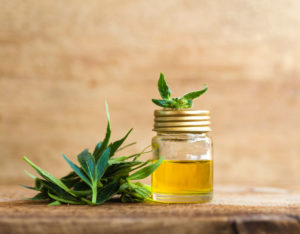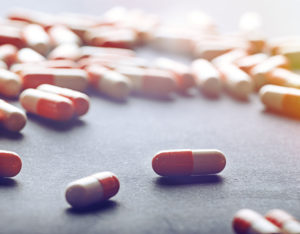Autism Spectrum Disorder, (ASD) is a developmental disorder that affects one in every 59 kids in the U.S., according to the Centers for Disease Control and Prevention, (CDC). Autism, though more common in children, affects both children and adults with varying symptoms that include monotonous speech, behavior disturbances, trouble regulating emotion and inappropriate social interaction. It’s more prevalent among boys and men compared to girls and women. According to the CDC, there is presently no medication that can neither cure ASD nor treat the core symptoms (restrictive, social and emotional reciprocity, repetitive behaviors) associated with the disorder. However, many medications that come with considerable side effects are available to manage some of the symptoms of people living with ASD. In view of this, many parents with ASD dependants have turned alternative medicines for hope.
The Rise and Popularity of CBD as an Alternative Treatment Option
Research indicates that CBD, due to its non-psychoactive effects, may be helpful in treating many health disorders that include epilepsy, seizures, pain, nausea, depression, autism and more with little or no side effects. The popularity and acceptance of alternative medicines in the U.S. have grown over the years. According to the National Center for Complementary and Integrative Health, (NCCIH), more than one-third of Americans use complementary and alternative medicines, including CBD, for varying reasons. The last few years witnessed a surge in the number of CBD users’ in the U.S., based on scientific research correlating many health benefits. Cannabidiol—better known as CBD—is one of the main components of the cannabis plant. Together with THC, these two compounds are the two most well-known cannabinoids identified in the plant. According to the CDC, CBD does not result in the euphoric feeling associated with THC because it works on different parts of the brain.
But the research is still in its infant stages, which leaves a popular question for many concerned parents: Does CBD improve the quality of life for people with autism spectrum disorder?
CBD and Autism: Does It Work?
Many scientific investigations are ongoing to test the effects of CBD on people living with ASD. However, some parents with ASD-dependent children have testified that the use of CBD oil helps improve the quality of life of their children. One of these includes results from a study conducted in Israel among parents with ASD dependant kids. The study involved the administration of CBD oil for 66 days under the supervision of some health workers. Based on the results obtained, many parents claimed to see improvements in their kids’ Autism co-morbidity symptoms. Co-morbidity symptoms include self –injury, aggressiveness, hyperactivity, sleep disorder and anxiety. However, the study did not provide information on the long-term effects of using CBD. According to Stephanie Gosk of the Center for Medicinal Cannabis Research, parents with ASD kids claim that their kids’ quality of life improved with the use of CBD products.
There is presently no evidence that CBD products enhance the quality of life of an adult with ASD.
How Does it Work?
CBD affects the cannabinoid signaling system known as the endocannabinoid system present in the brain. The cannabinoid signaling system is vital in regulating memory, pleasure, thinking, concentration, awareness of time, appetite, pleasure, sensory processing, pain, and body movement, in addition to brain development. CBD, based on numerous studies, seems to have an anti-inflammatory effect and a neuroprotective effect on the brain, which makes it an attractive subject of research.
Studies indicate that the endocannabinoid system equally responds to external cannabinoids that include CBD, or phytocannabinoid apart from the endocannabinoid produced in the body. CBD, when introduced into the body, has the potential to reduce the symptoms of many disorders that include the following:
- Depression
- Multiple sclerosis
- Epilepsy
- Chronic inflammation
- Diabetes
- Anxiety
- Rheumatoid arthritis
- Anxiety
- Opioid withdrawal
Low amounts of endogenous cannabinoids might result in Clinical Endocannabinoid Deficiency, which could make a person prone to conditions that include multiple sclerosis, migraines, autism and more. CBD is known to increase endocannabinoids in the body, promote homeostasis in the body, reduce inflammation and the sensation of pain without the side effects associated with conventional drugs.
Clinical Evidence
There is presently no clinical evidence that shows the benefits of CBD on ASD in the U.S. However, clinical trials are currently continuing to test the claims made by parents of children with ASD. One of such research, funded by the Holistic Research and Education Foundation, is currently ongoing at the University of California, San Diego The clinical trial seeks to ascertain the following on the use of CBD in treating severe autism in children.
- If it is safe and tolerable
- If it helps with the symptoms of Autism
- If and how it alters neurotransmitters
- If and how it improves brain connectivity
- If it alters the biomarkers of neuroinflammation
The investigation is conducted by Dr. Doris Trauner of the San Diego School of Medicine and her team.
What’s the Bad News?
The use of CBD in treating the symptoms comes with some inherent side effects. According to Trauner, some common side effects include:
- Dry mouth
- Drowsy
- Diarrhea
- Fatigue
- Loss of appetite
Some severe side effects reported include:
- Depression
- Low blood pressure
- Dizziness
- Hallucinations
- Withdrawal symptoms such as insomnia and irritability
CBD products come in varied forms with varying chemical combinations. This might make it susceptible to pharmacodynamic drug-drug interactions. In addition, the National Institute of Health, (NIH) urges restraint when using CBD with some drugs because of the potential effects on the body’s organs, mainly the liver. As always, consult your doctor before introducing CBD to you or your child.
CBD Tolerance
Based on the limited information available on the long-term effects of CBD on the body, CBD users may develop a tolerance over time for continued usage. This may result in reduced effects on the CBD from the same dosage. Larger serving sizes may eventually be required to maintain desired results.
The use of CBD has come to stay. However, while the promise looks good—especially where there is no better alternative from conventional medicines—it’s important to remember the pitfalls of using something that has, as of yet, no legal or scientific backing.
What’s your experience with CBD? Tell us in the comments below!




